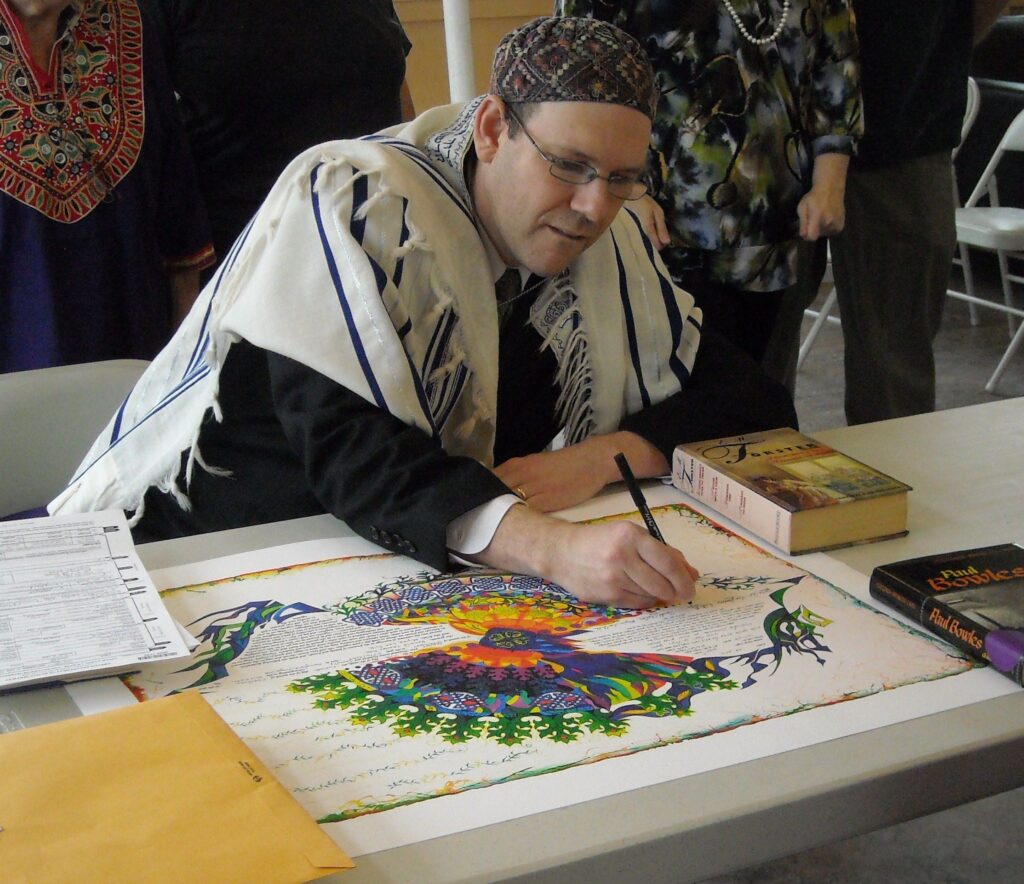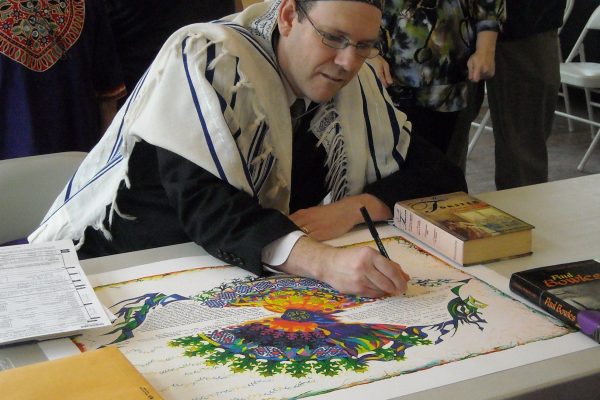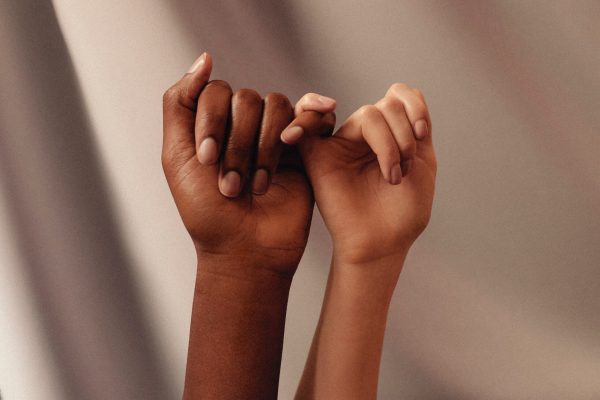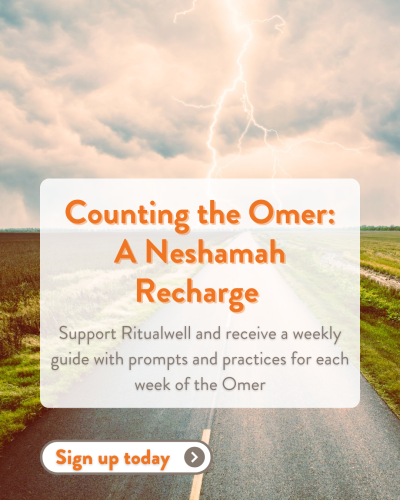On the ____ day of the week, the day of the [Hebrew] month of _______, the year _____ after the creation of the world, according to the manner in which we count [dates] here in the community of __________, the bridegroom __________ son of _________ said to this virgin _______________ daughter of ____________, “Be my wife according to the law of Moses and Israel. I will work, honor, feed and support you in the custom of Jewish men, who work, honor, feed, and support their wives faithfully. I will give you the settlement (mohar) of virgins, two hundred silver zuzim, which is due you according to Torah law, as well as your food, clothing, necessities of life, and conjugal needs, according to the universal custom.”
Miss ____________ agreed, and became his wife. This dowry that she brought from her father’s house, whether in silver, gold, jewelry, clothing, home furnishings, or bedding, Mr. __________ , our bridegroom, accepts as being worth one hundred silver pieces (zekukim).
Our bridegroom, Mr. _________ agreed, and of his own accord, added an additional one hundred silver pieces (zekukim) paralleling the above. The entire amount is then two hundred silver pieces (zekukim).
Mr. __________ our bridegroom made this declaration: “The obligation of this marriage contract (ketubah), this dowry, and this additional amount, I accept upon myself and upon my heirs after me. It can be paid from the entire best part of the property and possessions that I own under all the heavens, whether I own [this property] already, or will own it in the future. [It includes] both mortgageable property and non-mortgageable property. All of it shall be mortgaged and bound as security to pay this marriage contract, this dowry, and this additional amount. [It can be taken] from me, even from the shirt on my back, during my lifetime, and after my lifetime, from this day and forever.”
The obligation of this marriage contract, this dowry, and this additional amount was accepted by Mr. _________, our bridegroom, according to all the strictest usage of all marriage contracts and additional amounts that are customary for daughters of Israel, according to the ordinances of our sages, of blessed memory. [It shall] not be a mere speculation or a sample document.
We have made a kinyan from Mr. ________ son of _________ our bridegroom, to Miss________ daughter of_________, this virgin, regarding everything written and stated above, with an article that is fit for such a kinyan.
And everything is valid and confirmed.
______________son of___________ Witness
______________son of ___________ Witness













